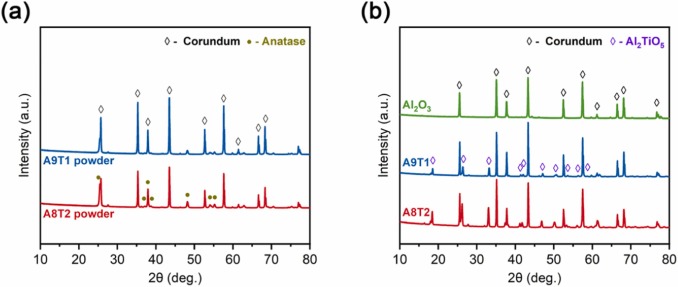Abstract
Based on the new conception of lattice low-shear stress induced by zero-dimensional point defects, the Al2O3 composite ceramics doped by TiO2 with good high-temperature tribological properties are prepared. According to the results, temperature could control the continuity of the resintering friction layer and the activation of the plastic deformation ability of ceramics. The lattice oxygen in TiO2 leaves the original lattice occupation due to thermal and frictional coupling action, and breaks away from the worn surface, which significantly increases the vacancy concentration level. Aforesaid structural defects are considered to be a crucial reason for the reduction of shear force. Compared with friction coefficient (0.53) for Al2O3 at 1100 degrees C, COF of TiO2-doped Al2O3-based ceramics is 0.26 about half of that. This vacancy quantitative change strategy of temperature-sensibility is expected to become a controllable method for providing lubrication during high-temperature.

Keywords Plus:ANION-DEFICIENT RUTILE,TRIBOLOGICAL PROPERTIES,MAGNELI PHASES,MECHANICAL-PROPERTIES,LUBRICIOUS OXIDES,SOLID LUBRICANTS,WEAR BEHAVIOR,COATINGS,MICROSTRUCTURE,COMPOSITES
Published in TRIBOLOGY INTERNATIONAL,Volume 196;10.1016/j.triboint.2024.109753,AUG 2024


